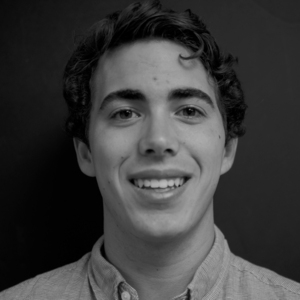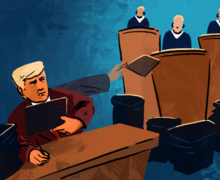Electoral College loopholes are tighter than most people believe
/ The Daily Orange
Faced with the possible tyranny of a Donald Trump presidency, hope is all many Americans have left.
And with hope in mind, more than four million people have signed a Change.org petition asking the electors of the Electoral College to diverge from Election Day results and elect Hillary Clinton as the 45th president of the United States. But the chances of the election being decided by “faithless electors” are nonexistent, even if one ignores the fact that Clinton already conceded the race. Historical precedent and current legal consequences indicate that an outpouring of faithless electors is simply not realistic.
Fueled by the perceived anonymity of the electors, there is a common misconception that this group only respects its state’s vote to preserve the integrity of the Electoral College. This is simply not the case.
Each political party has their own electors for each state, and only the winning party’s electors cast their ballots in the election’s final stage on Dec. 19. Essentially, when a person votes for president, they are really voting for their candidate’s electors.
Electors are chosen by political parties themselves, usually as a reward for years of service to the party. The majority of electors are everyday people who are selected because they exhibit a high degree of party loyalty and are unlikely to dishonor their affiliation. Electors are typically unknown to the general public because of a clause in the Constitution that dictates that “no Senator or Representative, or Person holding an Office of Trust or Profit under the United States, shall be appointed an Elector.”
Although it is an extreme rarity, there have been 85 instances of electors intentionally breaking their pledge in the history of the Electoral College, according to FairVote. These votes, while occasionally out of protest, are usually the result of an elector making a mistake and have never altered the outcome of an election. The practice of faithless electing is a historical outlier, and even in the scope of this year’s unconventional election, the odds of an elector crossing party lines is still extraordinarily low.
Since 1990, only two instances of faithless electing have occurred. In 2000, according to The Washington Post, a Democratic elector from Washington D.C. named Barbara Lett-Simmons refused to cast her ballot as a form of protest against the district’s lack of congressional representation. Lett-Simmons’ vote would have given Democratic nominee Al Gore 267 votes, which still would have been short of the 270 majority. In 2004, an unknown Democratic elector in Minnesota mistakenly voted for vice presidential candidate John Edwards instead of presidential candidate John Kerry, according to an Associated Press report. Kerry would have finished with 252 electoral votes — again, still short of the majority.
In this case, it would take a considerable turnaround for Clinton to secure the presidency. As of Wednesday night, Trump held 290 electoral votes to Clinton’s 232, making it statistically implausible that more than 30 electors would turn their backs on their party.
In 29 states, an elector’s failure to adhere to their party’s pledge is a criminal offense, ranging from a small fine to a felony. For example, if a Republican elector from North Carolina — a state won by Donald Trump — were to dishonor their pledge and vote for Hillary Clinton, their vote would be canceled. They would also be subjected to a small fine and would be barred from serving as an elector again.
As for the 21 other states, electoral college expert and Syracuse University professor emeritus Ralph Ketcham said he believes that any instance of an elector consciously choosing to oppose historical precedent is unlikely.
“The custom for the pledge to be honored is so strong — very, very rarely is it disobeyed,” said Ketcham. “I don’t think there’s any particular chance of it this time.”
Even if the polarizing nature of the election were to sway electors, Ketcham concludes that it will not be enough to change the end result, stating that, “it will not happen.”
Because of the extreme unlikelihood of a band of rogue electors, it is important to remain hopeful and politically active as citizens. Just because Donald Trump will become our next president in January does not mean that his disenfranchising campaign promises can be allowed to take effect.
No matter who is president, the future of the U.S. depends on an unrelenting effort to provide an environment that fosters equality for all people, regardless of ethnicity, gender, religion or sexual orientation.
If Trump plans to enact discriminatory policies during his presidential tenure, he must be countered with peaceful and organized action. Violence and name-calling does nothing but distract from and hinder the cause. Protests must be diplomatic, demonstrations must be considerate of others and disagreements must not be toxic.
As for the Trump supporters, and anyone who wishes to minimize the fear and anguish felt by millions nationwide: stop. When anyone decries and denounces a group to which someone identifies, it’s an insult to that person’s identity. When the president does so, it can shake someone’s confidence in the entire country. Let people grieve uninhibitedly. And, if possible, try to see things from a place of empathy.
Ryan Dunn is a freshman history major. His column appears weekly. He can be reached at rarozenb@syr.edu.
Published on November 16, 2016 at 6:57 pm






